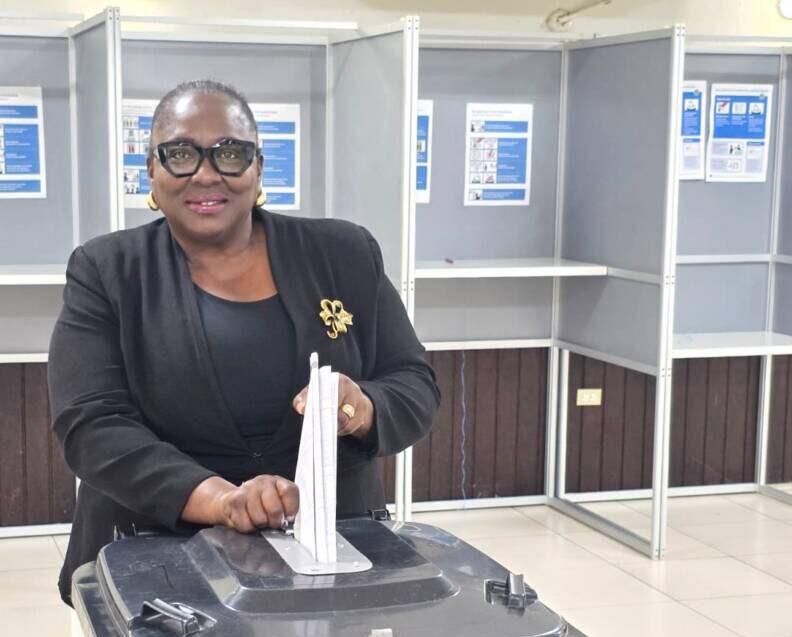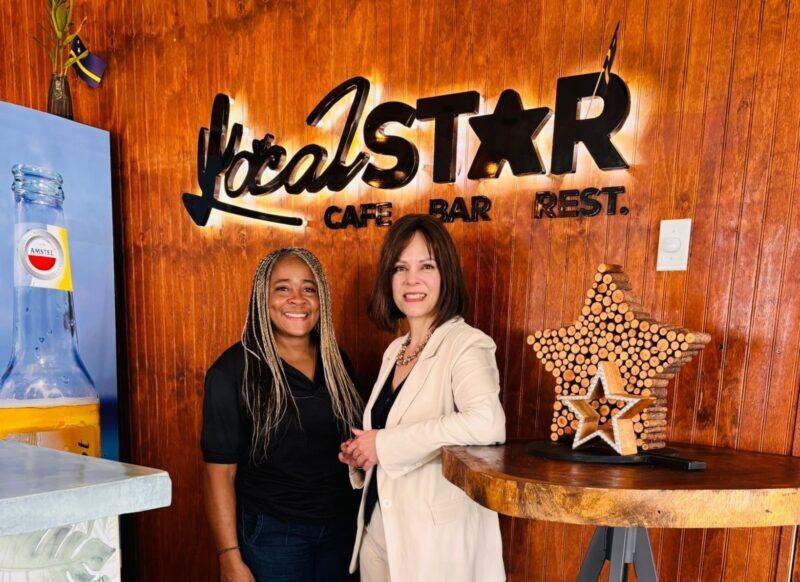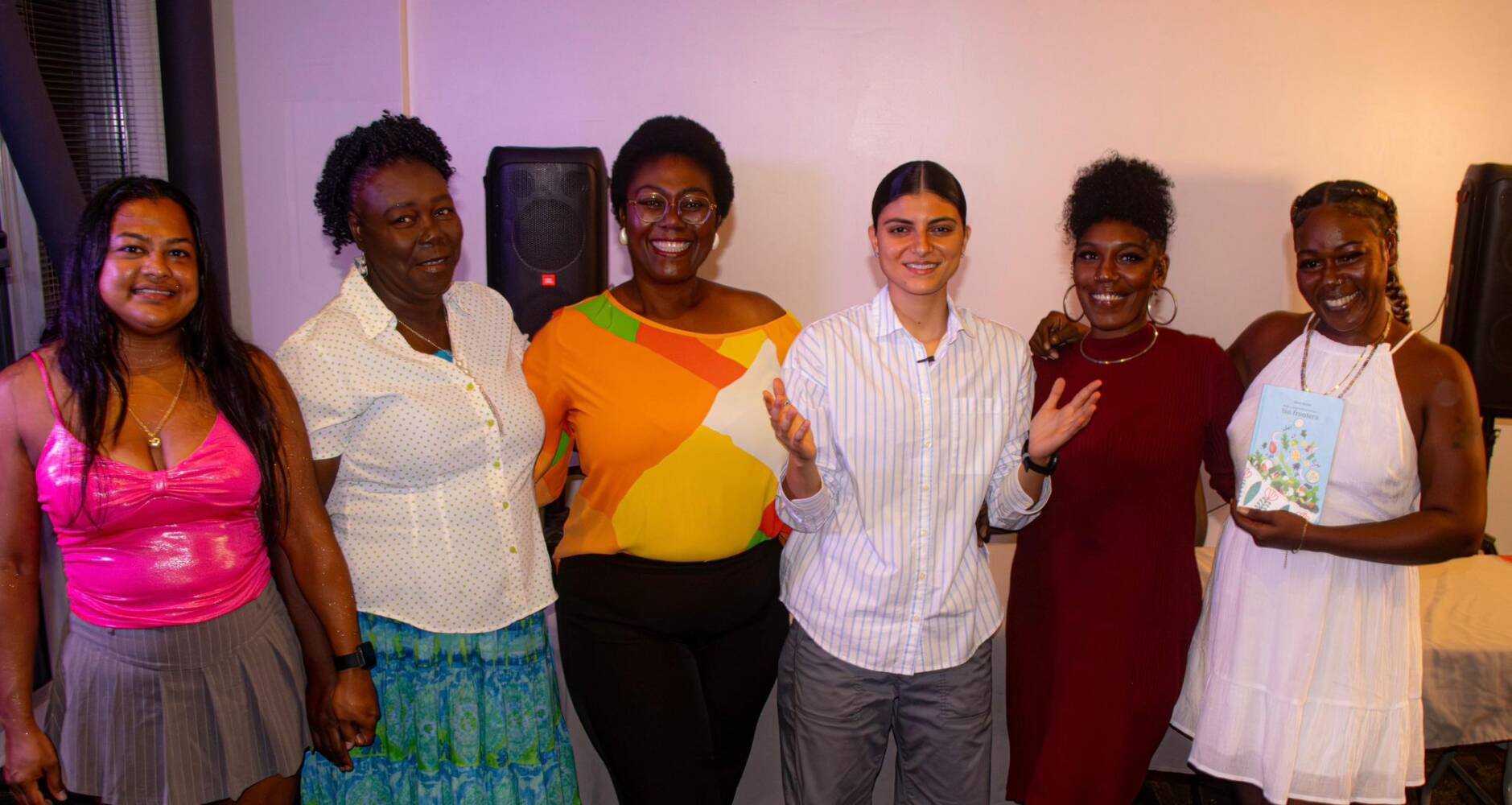The Island Governor of Sint Eustatius, Alida Francis, is concerned about the notably low number of voters who cast their ballots on her island in the elections for the Dutch parliament. Of the 1,935 eligible voters on Sint Eustatius, only 206 people voted on Wednesday, October 29. That is barely ten percent.
Like Bonaire and Saba, Statia’s residents have been able to vote for the composition of the House of Representatives (‘Tweede Kamer’) since 2010. In recent years, there has been little enthusiasm to do so. But this is the lowest voter turnout so far. “Dutch political parties must do more to get their message heard in the Caribbean part of the Kingdom.
The other islands too
The low turnout was not just on Statia. In the other islands of the Caribbean part of the Kingdom, not many people went to the polls either. On Bonaire, 3,355 people voted out of a total of 15,578 eligible voters. On Saba, 260 people voted out of 976 eligible voters.
The D66 party became the largest party on the islands of Bonaire and Saba. Preliminary results show that 103 people voted for the party of Rob Jetten on Saba. On Bonaire, 745 voters chose D66. GroenLinks/PvdA came in second on Saba this year with 68 votes. On Bonaire, the ChristenUnie is the second largest vote-getter with 516.
On Sint Eustatius, the NSC party stood out receiving the highest number of votes, with 65. According to Francis, MP Faith Bruyning has worked hard for the BES islands in recent years on behalf of that party. “I see it as a ‘gesture of appreciation’ for her.” Number two in votes is D66 with 45 votes, and GroenLinks/PvdA finished in third place with 30 votes.
Voting culture
Voter turnout is low: just over 26 percent on Saba, just over 21 percent on Bonaire, and just over ten percent on Statia. Francis has reflected on the reasons for this. “The main reason for the low turnout is that the voting culture in the Netherlands and Statia is different.”
She explains that before 2010, residents only voted in local political elections. “In 2011, we were allowed to vote for the House of Representatives for the first time. Unfortunately, the last fifteen years have not shown a positive development.”
Francis is a graduate Communications Specialist. “I see ‘an urgent need’ for Dutch political parties to think carefully about how they want their message to be heard in the Caribbean part of the Kingdom.”
“The numbers here are small, of course,” she says. But the policies made in The Hague have consequences for the residents here. Why don’t they make an extra effort to be heard? Why don’t they ‘go the extra mile’?” According to Francis, many Statia residents have too little information about Dutch political parties, and find it difficult to get.
Party programs in Dutch
“During the 2023 elections, a few politicians took the trouble to visit the BES islands to explain their positions. This year, that happened less. But why are all party programs in Dutch? Why not provide summaries in English, or Papiamentu, the other official language in the Caribbean part of the Kingdom?”
Francis: “I say this because political parties receive funds from the Dutch government. We are also Dutch citizens. Parties should also be interested in promoting their message here. We live in the age of AI and technology. Why don’t they create two or three-minute video messages in English for the islanders? In local elections, more than 85 percent go to the polls. Residents are normally active and engaged. But there is a lack of information from the Netherlands.”
Video messages
Therefore, her message to Dutch political parties is: “Do not forget the BES islands in your campaign. If you have a message, let us hear it too. ‘Work on this’. I hope this increases the participation rate of residents. We do have a voting culture, people do like to vote. Topics like healthcare are interesting to us too, but please present them in English.”
The current low voter turnout could send the wrong message that residents of the BES islands are not interested. “But we are.” Furthermore, Francis emphasizes that these elections have again made it clear ‘that every vote counts.’ “Right now, few people in the BES islands vote, but if everyone uses their right to vote, we can make a difference in some cases. We saw in these elections that every vote can be important. That should be compelling for every political party.”







